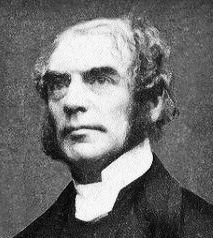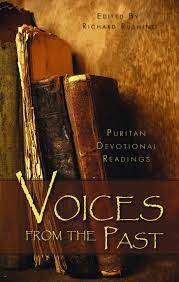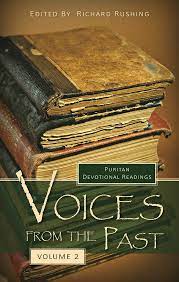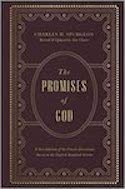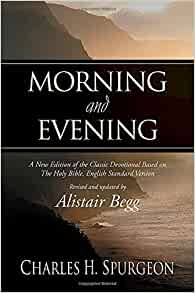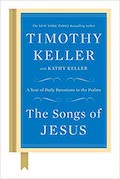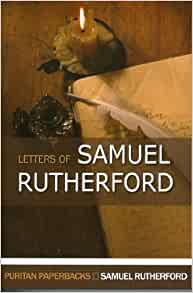Now from the sixth hour there was darkness over all the land until the ninth hour. (Matt. 27:45)
At high noon, when the sun was at its zenith, Christ and those who stayed to mock found themselves in thick darkness that was to last for three hours. A hand from on high had veiled the sun. Cowed but not convinced, the scoffers grew silent and slunk away. As Calvin says, they were bewitched by the enchantments of Satan’
At Bethlehem, when the Saviour was born, the night was changed to day as the glory of the Lord shone around the shepherds. On Golgotha the day gave way to night as Christ sank deeper and deeper into the abyss of damnation. At Bethlehem there were countless angels praising God; on Golgotha legions of darkness filled the impenetrable gloom, hoping that darkness would finally triumph over light.
Golgotha was so different from the mount of transfiguration where the Lord conversed with Moses, representing the law, and Elijah, representing the prophets (Mark 9:2-4). There, for a brief moment, the glory of deity broke through the veil of flesh, a fleeting glimpse of the radiant splendour of Christ when he comes at the end of this age ‘in the glory of his Father with the holy angels’ (Mark 8:38).
Between the shining forth of glory at the transfiguration and the glory of the second coming, however, lies the heavy darkness of Golgotha.
At the creation, God, at an early stage, introduced light. Yet now he leaves his Son suspended in darkness at midday. Why must the light of the world be placed in darkness? Why is there this startling contrast between Bethlehem and Golgotha, between the transfiguration and Golgotha, between the dawn of creation and that of the new creation?
Not only did this darkness at noonday hide the awful spectacle of the Sufferer from the contemptuous gaze of the scoffers, silencing their ribaldry, but also it mercifully concealed Christ when he experienced his darkest moment on the cross. No human eye must see him then. This darkness coincided with Christ’s descent into hell. Now he felt the unmitigated wrath of a holy God against sin. That darkness was a symbol of God’s wrath. Hendriksen says that God’s wrath was burning itself out in the heart of Jesus’, adding, ‘Hell came to Calvary that day, and the Saviour descended into it and bore its horrors in our stead.’ This was the Passover season. Just before the first Passover a plague of darkness betokened the curse of God upon his enemies (Exod. 10:21-23). The darkness that enveloped the Saviour at Calvary was clearly a visible expression of the inner darkness that wrung that dread cry of dereliction from his lips: ‘My God, my God, why have you forsaken me?’ (Matt. 27:46). To be forsaken by God is hell.
This was the moment when the prophecy of Daniel 9:26 was fulfilled: “An anointed one shall be cut off, and shall have nothing’ (see also Isa. 53:8). E. J. Young sees the expression “shall have nothing’ (literally and there is not to him’) as a very forceful way of setting forth His utter rejection, both by God and man… In that hour of blackness He had nothing, nothing but the guilt of sin of all those for whom He died. Utterly forsaken, He was cut off. Frans Bakker has this in mind when he thinks of Christ on the cross, poor and naked as the day he was born, while the soldiers gambled for his clothing. Not only did He lose all His gifts; He also lost the Giver. But He didn’t cry about His condition, only that God had forsaken Him. Christ cried to God, but for Him there was no mercy; He had to bear the curse; He had no rights. This is the stunning truth, yet, paradoxically, in the very moment that he lost all, he won all. As the Apostle Paul considered Christ’s death on the cross, the thought suddenly struck him, He did it because he loved me’ – another stunning truth.
Darkness also symbolizes mystery. There is much mystery at Calvary. A great deal has been revealed: substitution, conflict with the evil one, reconciliation and more – God’s holiness, justice and love. But how much of any of these can the human mind grasp? Is not Calvary a place veiled in darkness, even as God himself dwells in thick darkness (1 Kings 8:12, Psa. 18:11), a place so holy and so awful that the wisest thing to do is to remove one’s shoes and bow in penitent, grateful silence?
THE PORTENT OF THIS DARKNESS
This darkness, charged as it was with divine judgment, signalled the final judgment. And again darkness is used as a symbol of God’s wrath. The Apostle Peter, quoting from the prophet Joel, declared, The sun shall be turned to darkness and the moon to blood, before the day of the Lord comes, the great and magnificent day’ (Acts 2:20; see Isa. 13:10; 50:3, Joel 2:30, 31, Amos 8:9). Barely two months previously the people of Jerusalem had seen the sun turned into darkness, and, as F. F. Bruce points out, ‘The paschal moon may well have appeared blood-red in the sky in consequence of that preternatural gloom. These signs were tokens of the day of judgment, and so the prophecy of Joel forms the background to the description of the day of wrath in Revelation 6:12, “And the sun became black as sackcloth, the full moon became like blood… There we see the doom of the godless as this day of grace comes to an end, and all is for ever dark.
Did the light begin to return when Christ uttered his awful cry of God-forsakenness? Certainly it was then that they could see to dip a sponge in vinegar and give it to him to drink (Matt. 27:48). Then was fulfilled the Lord’s own prophecy, For my thirst they gave me sour wine to drink’ (Psa. 69:21) – a cheap, sour wine to quench his burning thirst. That darkness had held eternity in every minute that passed. It has been urged that because Christ’s sufferings were temporal and not eternal they could not be an equivalent for the eternal punishment of the lost. It is further asked how the death of one man could possibly be a satisfaction for the sins of an incalculable multitude. Such objections do not sufficiently take into account the fact that while Christ suffered in his human nature, he was a divine Person. Because of the infinite dignity of the One who suffered, there was infinite value attached to his work.
If the darkness through which the Saviour passed was so dreadful, how great must be the darkness of the sin he bore. This, says Calvin, should ‘excite in us deeper horror at our sins’. Those who live and die in unforgiven sin, live and die in darkness. There is no light for anyone except in Christ. Earthly wisdom is darkness in the sight of God. Christ exclaimed, If then the light in you is darkness, how great is the darkness!’ (Matt. 6:23). Calvin comments, Christ has good grounds for declaring that thick and appalling darkness must of necessity reign in the life of men, when they choose to be blind.’ It is Christ who by his cross turns man’s night into day. Spurgeon says, ‘The cross is the lighthouse which guides poor weather-beaten humanity into the harbour of peace.’
When the Covenanter, John Welsh, was imprisoned in a dungeon in Blackness, on the Firth of Forth, he received a letter from Lady Melville, of Culross, addressed to him and his fellow-captives, bidding them to be thankful that they were only in the darkness of Blackness, and not in the blackness of darkness’. Christ spoke solemnly of ‘outer darkness’ associating it with unspeakable anguish (Matt. 8:12; 22:13; 25:30). To redeem his people he entered and endured that darkness. Now he calls us out of darkness into his marvellous light’. He is the true light and those who follow him will not walk in darkness, but will have the light of life’ (1 Pet. 2:9, John 8:12).





